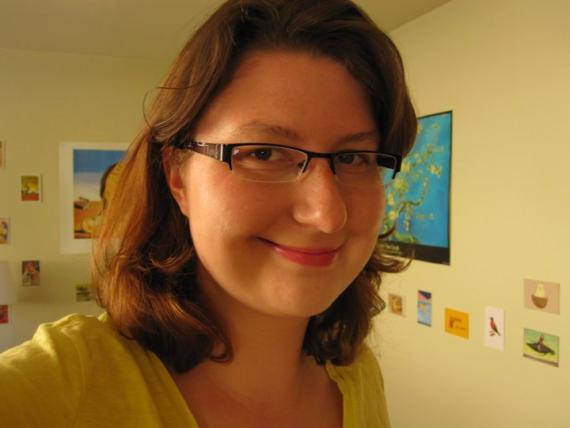In the past academic year, I have been representing the department as a Hanauer Fellow. The Joff Hanauer Fellowship is awarded each year to six graduate students from various departments within the Humanities. It provides the unique opportunity to discuss the Western cultural tradition from the viewpoints of different disciplines, preparing students for interdisciplinary scholarship in their future careers.
Together with five other graduate students from the departments of English (René Boullet), Classics (Eunice Kim), History (Jesse Meredith), Political Science (Yu Sasaki) and Comparative Literature (Yasaman Naraghi), I attended a bi-weekly seminar led by Prof. John Toews from the Comparative History of Ideas Program.
Over the course of the academic year, our discussions focused mainly on the intersection of trauma, memory and visual culture. In Fall quarter, we read parts of Hannah Arendt’s work and we had the unique chance to discuss the questions our discussion generated with Prof. Seyla Benhabib who gave a talk on “Hannah Arendt’s Eichmann in Jerusalem, Fifty Years Later.” In Winter quarter, we shared our dissertation projects with each other. In Spring, we had the opportunity to connect our focus on the visual representation of history and trauma to two lectures: Leo Spitzer and Marianne Hirsch on “School Photos and Their Afterlives: A Comparative Jewish Perspective” and Julia A. Thomas and Geoff Eley on “Visualizing War, Visualizing Fascism: Film and Photogrpahy in Germany and Japan.” We concluded our year by discussing W.G. Sebald’s “The Emigrants” and “On the Natural History of Destruction” and Walter Benjamin’s seminal essay “The Work of Art in the Age of Its Technological Reproducibility.”
The Hanauer seminar has influenced my own work in two ways. On the one hand, by discussing the advantages and disadvantages of visual representations, mainly centered around their constant ambiguity, I could connected our debates to my own project on online documentaries. On the other hand, it has been a rewarding experience working with graduate students from other disciplines, as they challenged me to figure out ways to present my film- and media-centered project to an audience that is not familiar with my area of study. Last but not least, I am glad that the Hanauer fellowship gave me the opportunity to meet young scholars whose work I am looking forward to read in the years to come.
